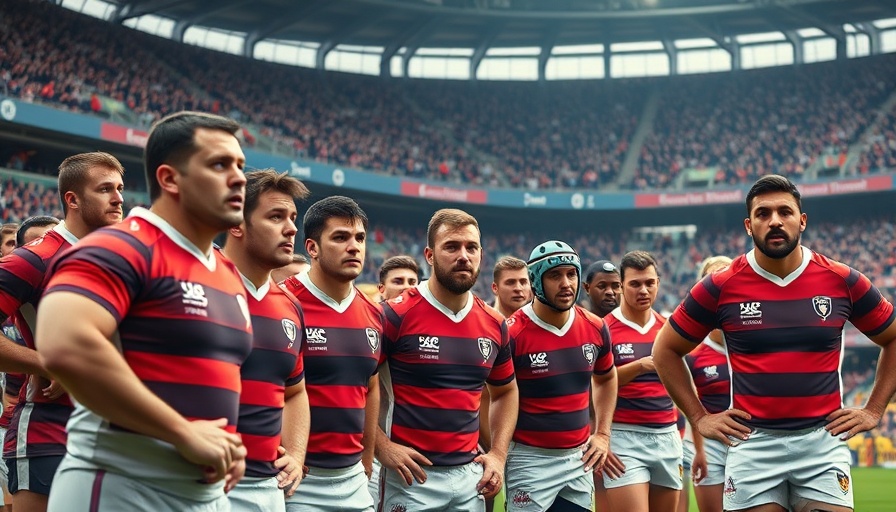
Understanding the Financial Rewards of Playing for the Springboks
The recently revealed earnings of players in the Springbok matchday squad have sparked intrigue among sports enthusiasts, especially athletes considering their career trajectories. The SA Rugby Industry Collective Agreement for the period 2024-2027 has clarified the financial landscape of rugby in South Africa, establishing a baseline for what players at various levels can expect to earn.
Asserting the Value: What Does It Mean to Be a Springbok?
For those unfamiliar with the realities of professional rugby, representing the Springboks comes with not just pride but substantial financial rewards. A player in the matchday squad earns approximately R118,197.93 per game, a sum that showcases the commitment to adequately compensating athletes for their efforts on the field. In contrast, those not on the matchday squad receive R59,539 weekly, emphasizing the distinct earnings based on participation level.
An Eye on Comparisons: Local vs. International Earnings
While the salaries for South African players might seem commendable, a closer look at international options reveals a stark difference. Players entering the English Premiership can earn starting salaries exceeding R900,000, nearly double that of their South African counterparts in top domestic leagues. This scenario sheds light on why many emerging talents might opt for overseas contracts, where the financial rewards align more closely with the physical toll the sport demands.
The Growing Talent Exodus: Understanding the Migration
The allure of higher salaries overseas raises questions about player retention in South Africa. With a starting contract of around £40,000 in the English Premiership, many players are compelled to pursue wealth rather than stay loyal to local unions. This trend could potentially impact the depth and competitiveness of South African rugby on a global scale. Many elite athletes, including Springbok stars, have made headlines for their overseas transitions, aiming for financial stability and career longevity.
Potential for Growth: What Does the Future Hold?
Looking ahead, South African rugby faces an important juncture. The current salaries as stipulated in the Collective Agreement may provide a solid foundation, but in a competitive international market, the growing disparity in earnings could encourage further talent flight. All stakeholders in Springbok rugby must consider ways to enhance player contracts and keep local talent engaged. Potential strategies include increasing bonuses tied to performance and incorporating more lucrative endorsement deals that can attract young locals.
The Importance of Financial Awareness for Aspiring Athletes
For young athletes, understanding the financial dynamics at play in professional sports is crucial. It not only sets realistic expectations but also empowers them to navigate their careers effectively. Knowledge of what players before them have earned can inspire and motivate; thus, discussions surrounding the financial implications of sport should be more prevalent within the rugby community.
Building Careers Beyond Rugby: A Broader Perspective
As Springboks like Siya Kolisi and others serve as role models, their influence extends beyond just rugby. They showcase how athletes can use their platforms for diverse opportunities, including investments and personal branding. This broader application of fame can significantly impact their financial security post-retirement and encourage younger players to think beyond the pitch.
Conclusion: Valuing the Player Experience
In understanding the financial implications of being part of the Springbok matchday squad, athletes can make educated decisions about their careers. As South African rugby evolves, fostering an environment that retains talent while supporting individual needs will be essential. The journey of an athlete is not only about the game; it’s about ensuring a sustainable future in and outside of sport.
As you navigate your path in sports, remember the importance of financial literacy and long-term planning. If you have aspirations of making it big in rugby or any sport, consider all aspects, from contracts to legacy, and prepare for the opportunities that come your way.
 Add Row
Add Row  Add
Add 


Write A Comment